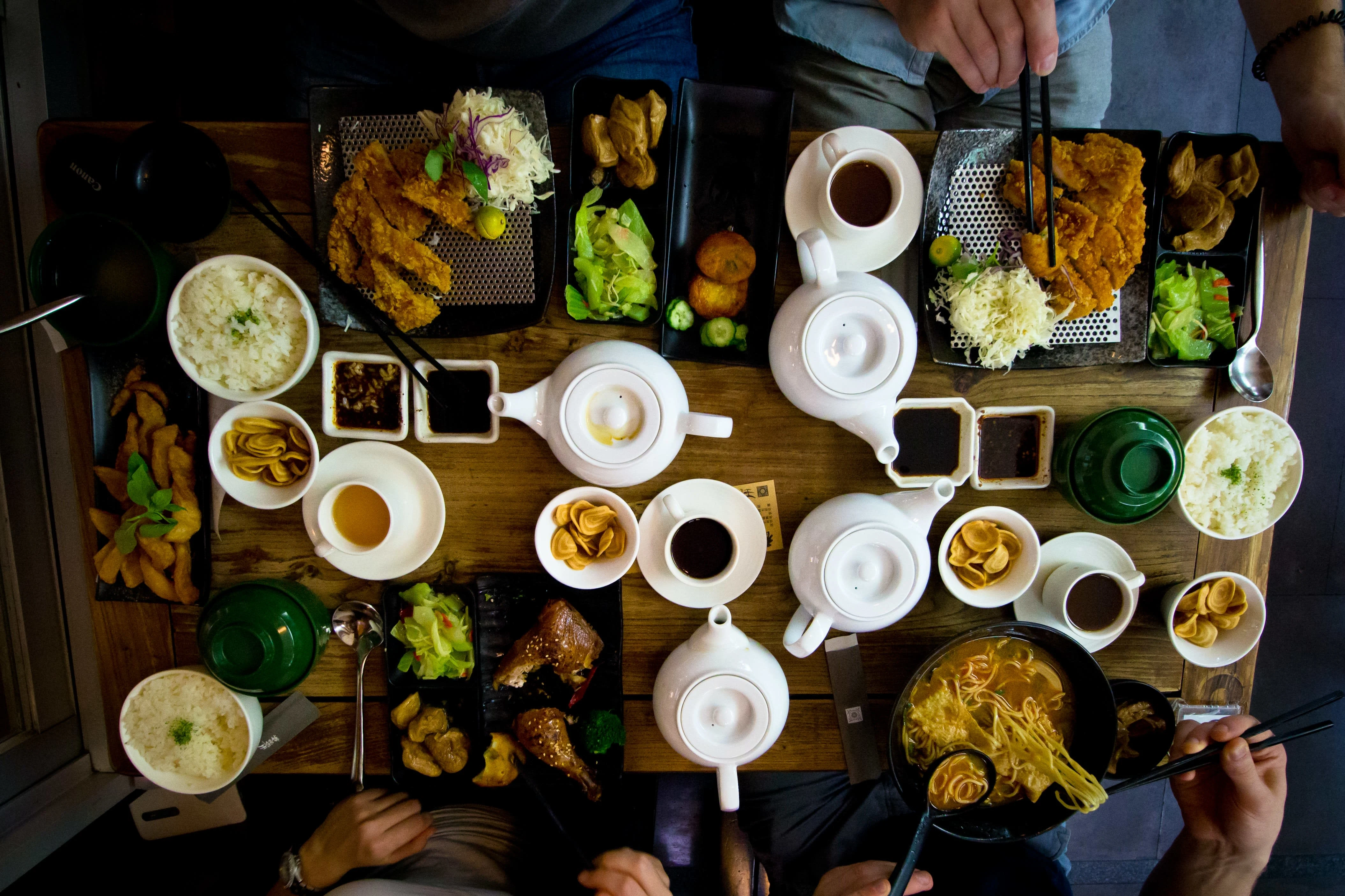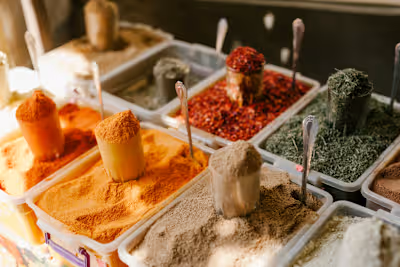Blog: The Importance of Authentic Local Eateries
When traveling abroad, one of the most exciting aspects is experiencing the local cuisine and immersing oneself in the flavors and culinary traditions of the destination. While popular tourist spots and international chain restaurants may offer some familiarity, true food enthusiasts know that the real gems lie in the authentic local eateries. These hidden culinary treasures showcase the authentic flavors, traditions, and cultural nuances of a place. However, finding such establishments can be a challenge, especially in unfamiliar surroundings. In this article, we will explore valuable tips and techniques for discovering and enjoying authentic local eateries while traveling abroad, ensuring that your dining experiences are not only delicious but also memorable.

1. The Importance of Authentic Local Eateries
Why Authentic Local Eateries Matter
Picture this: you're in a new city, ready to embark on a culinary adventure. You want to taste the flavors and experience the culture through its cuisine. So, what's the first step? Finding authentic local eateries, of course!
Authentic local eateries offer a window into the heart and soul of a destination. They provide a unique opportunity to connect with the local community, savor traditional dishes passed down through generations, and discover flavors you won't find in touristy restaurants.
When you dine at these hidden gems, you're not just eating; you're immersing yourself in the local culture, learning about the history and traditions that shape a place. It's like a crash course in gastronomy and anthropology, rolled into one mouthwatering experience.
Now that we've established why authentic local eateries matter, let's dive into the nitty-gritty of finding them.
2. Researching Local Cuisine: Tips and Resources
Online Platforms and Websites
Ah, the wonders of the internet! When it comes to hunting down the best local eateries, online platforms and websites can be your trusty sidekicks.
Popular platforms like Yelp, TripAdvisor, and Google Maps offer a wealth of information and reviews from fellow travelers. Digging through these platforms can help you uncover hidden gems and filter out the tourist traps. Pay attention to local reviews and check if the restaurant menu features traditional dishes.
Additionally, there are specialized websites dedicated to local cuisines and foodie experiences. Websites like EatYourWorld.com and LocalEats.com provide comprehensive guides to various cities, helping you find the most authentic and mouthwatering options.
Food and Travel Blogs
Food and travel blogs are a gold mine of insider tips and recommendations. Bloggers often go off the beaten path, exploring local neighborhoods and unearthing hidden culinary treasures.
Search for blogs that focus on the destination you're visiting. These bloggers are passionate about local cuisine and are usually quick to spill the beans on the best spots in town. They'll share their personal experiences, drool-worthy food photos, and insider insights that will make your taste buds tingle.
Travel Guidebooks
Ah, the trusty travel guidebook. While some consider them relics from a bygone era, guidebooks can still be valuable companions when it comes to finding authentic local eateries.
Look for guidebooks that prioritize local recommendations and focus on cultural immersion. They often include suggestions for off-the-beaten-path restaurants and cafes that capture the essence of the destination. Plus, guidebooks make great reading material while you're on the go, offering a tangible connection to the city you're exploring.

3. Exploring Off-the-Beaten-Path Neighborhoods: Where to Look
Asking Locals for Recommendations
When it comes to finding the best local eateries, there's no better source of information than the locals themselves. Strike up a conversation with friendly locals, whether it's your Airbnb host, a taxi driver, or a friendly face at a local market. Ask for their favorite spots and hidden food gems. You'll be surprised at the wealth of knowledge and mouthwatering recommendations they can offer.
Exploring Local Markets
Speaking of local markets, they are a treasure trove of authentic culinary delights. They are not only a feast for the eyes but also a paradise for your taste buds. Wander through the colorful stalls, sample local street food, and strike up conversations with the passionate vendors. They can guide you to nearby eateries that serve up traditional flavors with flair.
Venturing Beyond Touristy Areas
To find authentic local eateries, you often need to venture beyond the well-trodden tourist paths. Explore the lesser-known neighborhoods, where the locals live, work, and eat. These areas are often brimming with small family-run restaurants, hole-in-the-wall joints, and unassuming cafes that serve up authentic dishes with love.
4. Talking to Locals: Uncovering Hidden Food Gems
Overcoming Language Barriers
Language barriers can sometimes be intimidating, but fear not! A smile and a little effort go a long way. Learn a few basic phrases in the local language, like "hello," "thank you," and "delicious." Locals appreciate the effort, and it can lead to unforgettable interactions and personalized recommendations.
Engaging in Conversations with Locals
Strike up conversations with locals whenever you can. Whether it's at a cafe, on public transport, or during a food tour, engaging in conversations can unlock a world of hidden food gems. Locals love sharing their favorite food spots and traditions, and you might even make some lifelong friends along the way.
Seeking Recommendations from Restaurant Staff
Who knows better about local cuisine than the people who work in local restaurants? Don't hesitate to strike up conversations with restaurant staff. Ask them about their favorite dishes on the menu or if they have any off-menu specials. They can provide valuable insights and direct you to the most authentic and delicious options.

5. Understanding Authenticity: Identifying Genuine Local Eateries
Researching Traditional Dishes and Ingredients
One of the best ways to determine whether a restaurant is truly authentic is by researching the traditional dishes and ingredients of the local cuisine. Look for establishments that offer dishes that are unique to the region or use locally-sourced ingredients. Avoid places that heavily cater to tourists with generic menus and international dishes.
Assessing the Local Customer Base
Another way to gauge authenticity is by observing the local customer base. If you see a restaurant packed with locals, chances are it's a good indication that the food is authentic and delicious. On the other hand, if you see mainly tourists, it might be a sign that the place is catering more to international tastes.
Evaluating the Atmosphere and Decor
The atmosphere and decor of a restaurant can also give you clues about its authenticity. Look for places that have a cozy and welcoming ambiance, with local artwork or cultural touches. Avoid restaurants that feel too generic or overly commercialized.
6. Navigating Language Barriers: Tips for Ordering and Communicating
Basic Food-related Vocabulary
Before your trip, it's a good idea to familiarize yourself with basic food-related vocabulary. Learn the names of popular dishes, ingredients, and common phrases like "please" and "thank you." This will make it easier to understand menus and communicate your preferences to the waitstaff.
Using Translators and Translation Apps
If you're still struggling with the language, technology can come to the rescue. Use translation apps or carry a pocket-sized translator to simplify communication. Just be sure to double-check the translations for accuracy, as technology isn't always perfect.
Non-Verbal Communication Strategies
When words fail, non-verbal communication can save the day. Pointing at pictures or items on the menu, using hand gestures, or even mimicking eating actions can help convey your preferences without relying solely on language. Don't be afraid to get a little creative!

7. Embracing Local Dining Culture: Etiquette and Customs
Learning Table Manners and Customs
Take a moment to familiarize yourself with the local table manners and customs. For example, in some countries, it's customary to eat with your hands, while in others, using utensils is the norm. Learning these nuances will not only help you fit in but will also enhance your dining experience.
Tipping and Payment Practices
Tipping customs vary from country to country, so be sure to research the local practices beforehand. In some places, tipping is not expected, while in others, it may be considered rude not to leave a gratuity. The same goes for payment methods – some countries prefer cash, while others readily accept credit cards.
Adapting to Meal Times and Service Speed
Meal times and service speed can differ greatly depending on the destination. Some cultures value leisurely dining experiences, while others prioritize efficiency. Be flexible and adapt to the local customs, whether it means adjusting your eating schedule or embracing a slower pace of service.
8. Conclusion: Enjoying Memorable Culinary Experiences Abroad
By understanding authenticity, navigating language barriers, and embracing local dining culture, you can enhance your culinary adventures abroad. So go ahead, dive into the local food scene, savor new flavors, and create unforgettable memories one delicious bite at a time!
By seeking out and embracing authentic local eateries while traveling abroad, you open yourself up to a world of vibrant flavors and cultural experiences. From researching and exploring off-the-beaten-path neighborhoods to engaging with locals and understanding authenticity, each step brings you closer to unforgettable culinary adventures. Navigating language barriers and embracing local dining customs further enhance your immersion in the local culture. So, the next time you travel, make it a priority to find and savor the authentic local eateries – because the most memorable meals are often found in the hidden corners of the world.

Like this project
Posted Sep 8, 2023
Supporting local eateries builds community, flavors neighborhoods, and sustains unique culinary traditions.
Likes
0
Views
12





